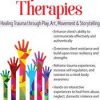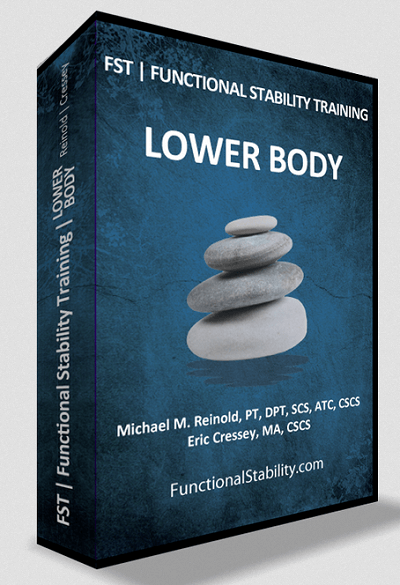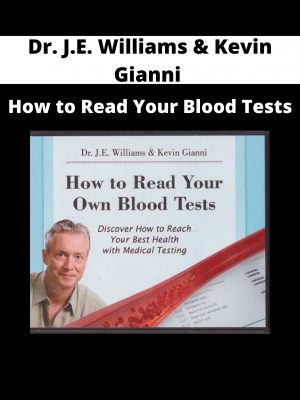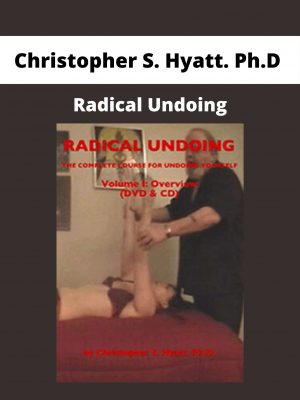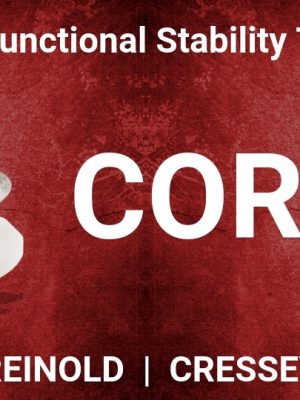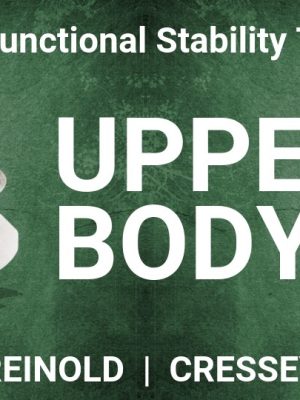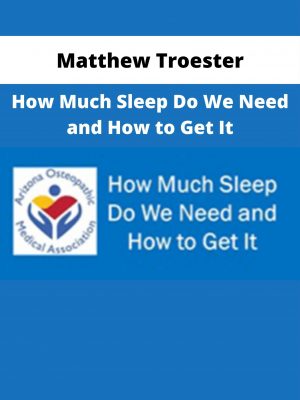Mike Reinold & Eric Cressey – Functional Stability Training for the Lower Body
$129 Original price was: $129.$38Current price is: $38.
Shopping Instructions:
- DISCOUNT 15% : SHOP15
- Product Delivery: Within 1 – 12 hours after purchase.
Functional Stability Training for the Lower Body takes a hard look at the lower extremity and how to most effectively optimize function. By addressing alignment, strength, mobility, and dynamic motor control, you can maximize your rehabilitation and training programs to reach optimal performance.
Mike Reinold & Eric Cressey – Functional Stability Training for the Lower Body
Functional Stability Training for the Lower Body takes a hard look at the lower extremity and how to most effectively optimize function. By addressing alignment, strength, mobility, and dynamic motor control, you can maximize your rehabilitation and training programs to reach optimal performance.
The lower extremities work in conjunction with the core to provide mobility, strength, and power to the entire body. Any deficits in stability throughout the lower body’s kinetic chain can lead to injury, dysfunction, and a decrease in performance. FST for the Lower Body aims to help formulate rehabilitation and training programs designed to optimize how the lower body functions.
The FST for the Lower Body program can be applied to rehabilitation, injury prevention, and performance enhancement programs.
For the rehabilitation specialist, the information will help you restore functional activities faster. For the fitness and performance specialists, the information will help you achieve new progress with your clients to maximize functional and athletic potential. For the fitness enthusiast, the information will help you gain control of your lower body, maximize functional movement, and reduce wear and tear due to faulty movement patterns.
Train the Lower Body to Maximize Function while Minimizing Poor Movement Patterns. Simple, yet highly effective.
Here is What You Will Learn
The FST for the Lower Body is available as a completely online educational program, as well as a DVD. The program is several hours of video of Mike and Eric during lecture and hands-on lab sessions teaching the FST for the Lower Body program. Topics include:
Module 1 – Training the Hip for FST of the Lower Body
- Influence of the lumbopelvic region on lower body kinetic chain
- Why you still need to be focused on strength AND functional training
- How to disassociate the hip and lumbar spine
- Integrating eccentric control and triplanar movements
Module 2 – Assessing Lower Body Alignment and Movement
- Quick tips for assessing posture and alignment in 3D
- How to spot compensation patterns during common assessments
- How alignment influences movement patterns
- How to enhance the reliability and validity of your assessments
Module 3 – Preparing the Adductors for Health and Performance
- Understand the functional anatomy of this incredibly important muscle group
- Appreciate these muscles’ role in the etiology of acute and chronic injuries
- Learn training techniques to improve tissue length, quality, and strength in functional contexts
Module 4 – Hip Internal Rotation Deficits: Why You Have Them and What to Do About Them
- Understand why hip internal rotation is important
- Appreciate the factors that may contribute to losses in hip IR, and what these losses mean to injury risk
- Learn mobility and stability exercises to address the issues
Module 5 – Training the Foot and Ankle for FST of the Lower Body
- The influence of the foot and ankle on the lower extremity
- Impact of mobility issues on lower extremity kinematics and performance
- Improving mobility, strengthening and dynamic stabilization of the ankle
Module 6 – Understanding and Implementing Neuromuscular Control Progressions into your Programing
- Why, how, and when to integrate neuromuscular control drills into your rehab and training programs
- Learn the phases of proper neuromuscular control development
- Understand several progressions designed to maximize neuromuscular control
Module 7 – How to Integrate Neuromuscular Control Progressions
- A step by step approach to integrating NM control drills
- How to gradually increase challenge to you drills to maximize NM control development
- Know when to increase or decrease the challenge provided
Module 8 – 15 Things I’ve Learned About the Deadlift
- Understand whether unilateral deadlift variations have afford as many benefit as unilateral squats
- Appreciate that not all types deadlifts are created equal
- Learn which body types are most suited to different styles of deadlifting
- Appreciate different coaching cues one can utilize to improve deadlift technique
- Review the differences between the deadlift and first pull of the Olympic lifts
Module 9 – Developing Lower Extremity Strength and Power Outside the Sagittal Plane
- Understand the need for non-linear speed and strength protocols
- Appreciate the role of proper footwear in change-of-direction work
- Learn dozens of exercises and where they fit on the progression-regression continuum
- Appreciate a yearly planning model for transverse and frontal plane power development
Sale Page: http://functionalstability.com/functional-stability-training-for-the-lower-body/
Related products
HEALTH & MEDICAL
Dr. J.E. Williams & Kevin Gianni – How to Read Your Blood Tests
HEALTH & MEDICAL
HEALTH & MEDICAL
HEALTH & MEDICAL
HEALTH & MEDICAL
Matthew Troester – How Much Sleep Do We Need and How to Get It
HEALTH & MEDICAL
Regina Meredith – Conscious Media Network with Regina Meredith – Eric Pearl on The Reconnection


